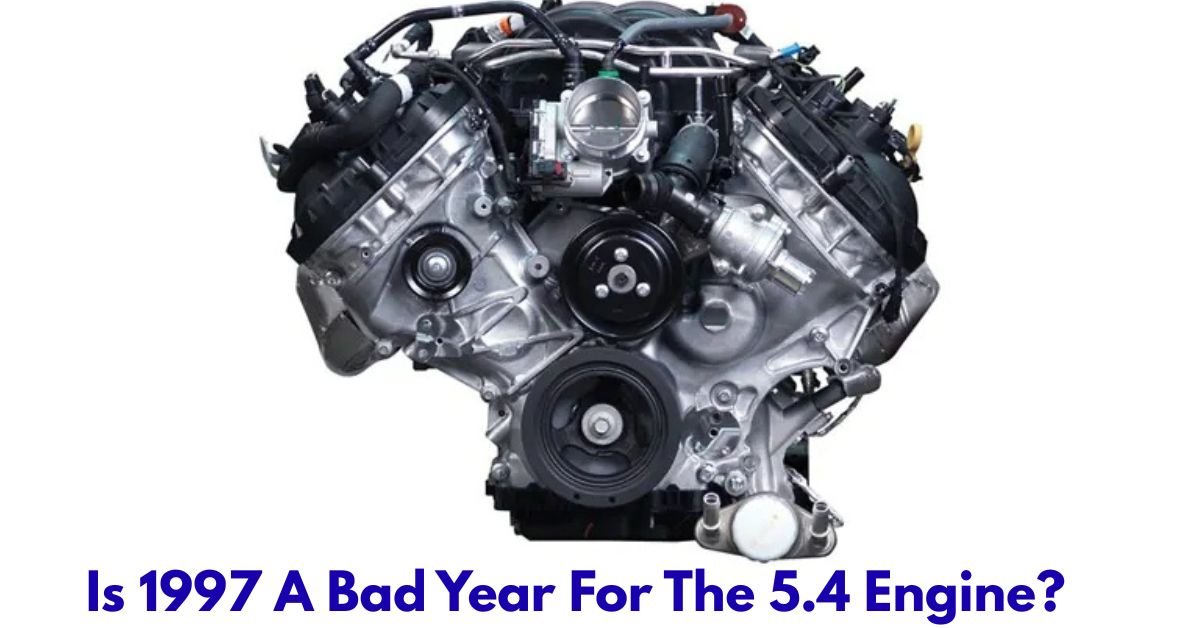When it comes to Ford’s lineup of V8 engines, the 5.4-liter Triton is one of the more talked-about powerplants. Introduced in the late 1990s, the 5.4L Triton engine was designed to offer a balance of torque, power, and durability. However, the 1997 model year — the first full production year for the 5.4L — has a somewhat controversial reputation among truck and SUV enthusiasts. But is 1997 really a bad year for the 5.4 engine? Let’s take a closer look.
Is 1997 a Bad Year for the 5.4 Engine?
The Context: Launch Year for the 5.4 Triton
The 5.4L Triton V8 debuted in 1997 as part of Ford’s Modular engine family. The 1997 Ford F-150 and the Ford Expedition were the most notable vehicles to employ it. As with many new engine designs, the first model year often experiences growing pains — and that was certainly the case for this engine.
On paper, the 5.4L engine delivered solid performance: around 260 horsepower and 350 lb-ft of torque. These were respectable numbers for a naturally aspirated V8 in the late ’90s. However, performance figures don’t tell the whole story — especially when reliability is in question.
Common Issues with the 1997 5.4 Engine
Here are some of the most frequently reported problems with the 1997 version of the 5.4L Triton:
- Spark Plug Blowouts
One of the most notorious issues with early 5.4 engines, particularly 1997–2003 models, is spark plug blowout. The aluminum heads on the engine had fewer threads than ideal, and under high heat and pressure, spark plugs could blow right out of the cylinder head. This led to costly repairs and, in some cases, engine damage. - Timing Chain and Tensioner Problems
Early versions of the 5.4 used plastic timing chain guides and less robust tensioners. Over time, these components could wear out, leading to a noisy timing chain (a common “rattling” on cold start) and, if ignored, severe engine damage. - Intake Manifold Failures
The 1997 5.4 was part of the era when Ford used plastic intake manifolds. These manifolds were prone to cracking, especially around the thermostat housing, leading to coolant leaks and overheating. - Oil Leaks and Gasket Failures
Many owners reported oil leaks due to valve cover gasket failures. While this isn’t necessarily catastrophic, it contributes to long-term reliability concerns and added maintenance costs.
Must Read: 5 Best Guides How Long Can You Drive With Check Engine Light On?

Improvements in Later Years
To be fair, Ford did address many of the issues in later model years. By 2004, when the 5.4 was redesigned with three valves per cylinder and updated components, many of the original design flaws were corrected. But the trade-off was the introduction of new issues, like cam phaser problems and even more complex timing chain systems.
So, while later models had their own issues, the 1997 version of the 5.4 is often remembered for being the “beta test” for the engine’s full production run.
Is 1997 a Bad Year for the 5.4?
It depends on what you mean by “bad.” If you’re asking whether the 1997 5.4 engine is unreliable by today’s standards, the answer is yes — at least compared to later engines or modern alternatives. The combination of spark plug issues, intake manifold problems, and timing chain concerns makes this engine more maintenance-intensive than one might expect.
However, some truck owners report hundreds of thousands of miles on their original 5.4 engines with regular maintenance. In other words, while 1997 was not the most refined or trouble-free version of the engine, it wasn’t universally a disaster.
Final Thoughts
The 1997 5.4L Triton engine was a workhorse for its time, but it came with a set of well-documented issues that make it less desirable for buyers today. If you’re shopping for a used Ford truck or SUV, it might be wise to look at models from 1999 or later — or even consider the redesigned 3-valve versions from 2004–2008, depending on your comfort with mechanical repairs.
In short: yes, 1997 was a rough year for the 5.4 engine — but “bad” depends on your expectations and mechanical know-how. For DIYers who don’t mind doing some wrenching, a 1997 5.4 might still offer decent value. But for those seeking peace of mind and reliability, it’s probably a year to skip.
